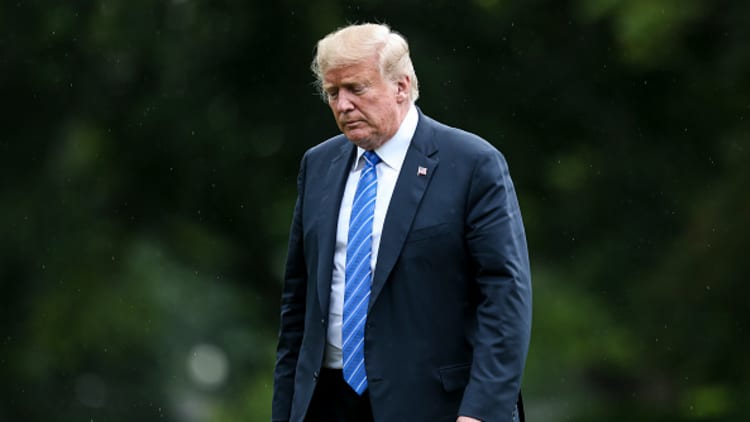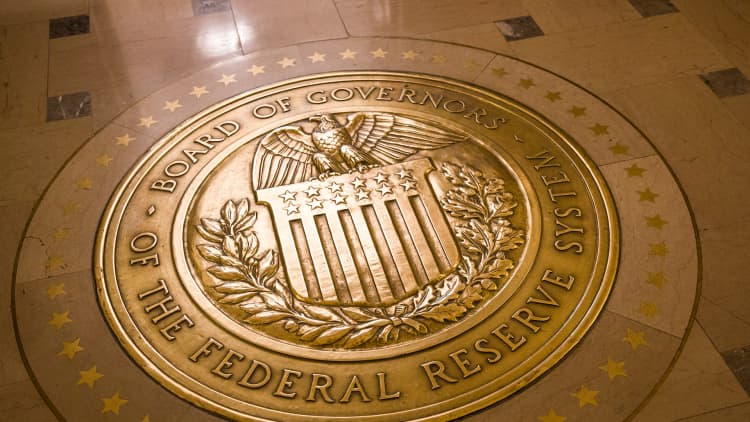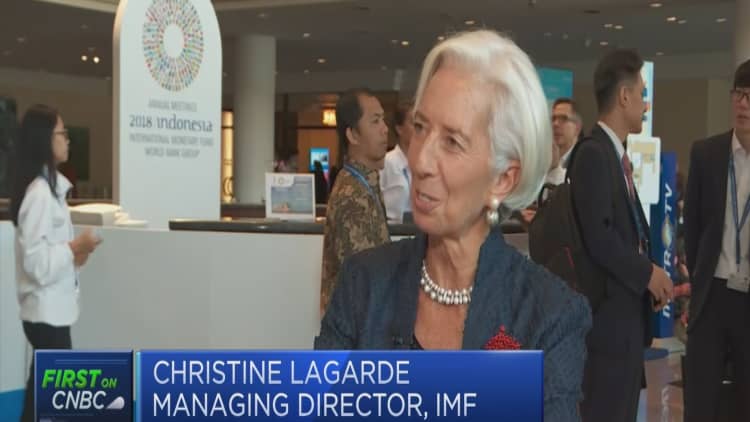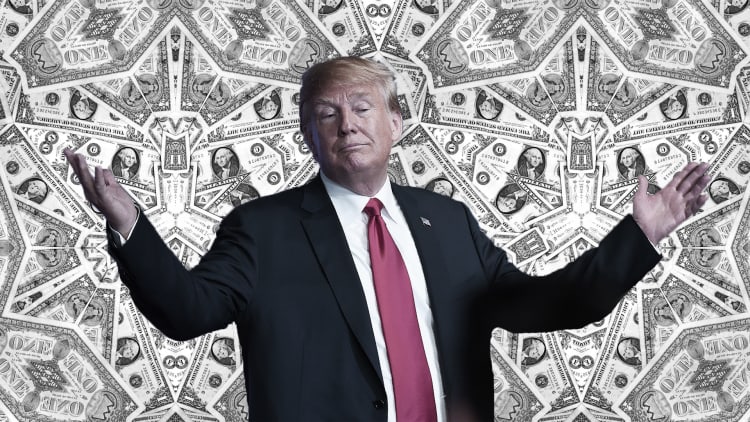
President Donald Trump directly accused Federal Reserve Chairman Jerome Powell of endangering the U.S. economy by raising interest rates, according to The Wall Street Journal.
"I'm just saying this: I'm very unhappy with the Fed because Obama had zero interest rates," Trump told the Journal on Tuesday. "Every time we do something great, he raises the interest rates."
The president said Powell "almost looks like he's happy raising interest rates," but declined to elaborate, according to the Journal.
Trump acknowledged that the Fed is traditionally independent of political influence, the Journal reported, but he still pressed his attacks and appears to view the United States' current economic performance as a competition between himself and President Barack Obama.

As the central bank of the United States, the Federal Reserve's mission is to set interest rates with the twin goals of maximizing employment and fighting inflation. The Fed is traditionally granted independence from presidential influence so that it can fulfill that so-called "dual mandate" without political interference.
The Fed has raised interest rates three times this year as the U.S. economy has heated up, and it is widely expected to hike again before year-end.
"How the hell do you compete with that? And Obama — remember this, it's very important — Obama had zero interest," the president told the Journal on Tuesday.
Obama took office after the Great Recession began in December 2007. The Federal Reserve at that time put historically low interest rates in place, and took other measures besides, in an effort to inject money into the faltering economy.
Contacted by CNBC, the Federal Reserve declined to comment.
The White House did not respond to a CNBC request for comment.
Trump: 'Maybe' I regret nominating Powell
Asked if he regrets nominating Powell to his Fed chairmanship, Trump told the Journal: "Too early to tell, but maybe."
Powell has said neither he nor other Fed officials are letting Trump's frequent complaints affect them.
"My focus is essentially on controlling the uncontrollable. We control what do," Powell said in a question-and-answer session with Judy Woodruff of PBS this month.
Also this month, Trump complained that the Fed had "gone crazy" by tightening its monetary policy. His statement prompted International Monetary Fund Managing Director Christine Lagarde and others to come forward in defense of Powell and the Federal Reserve's decision-making.

"I would not associate Jay Powell with craziness. No, no, he comes across, and members of his board, as extremely serious, solid and certainly keen to base their decisions on actual information," Lagarde said, speaking to CNBC in Bali, Indonesia.
Click here for the full report in the Wall Street Journal.
Watch: Here's where Trump gets credit on the economy, and what could go wrong

— CNBC's Jeff Cox contributed to this report.



